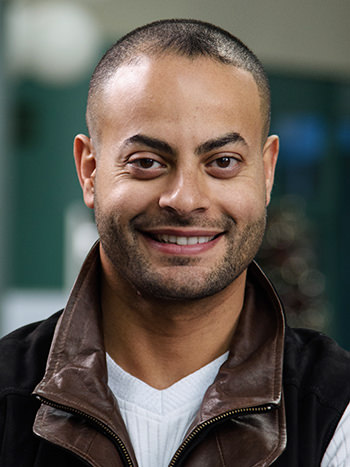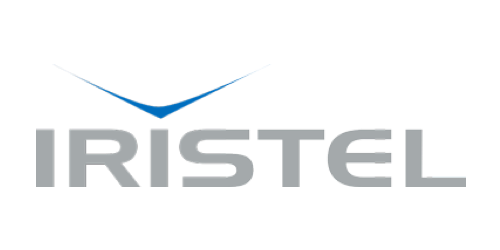PV LP Q&A Interview with Samer Bishay
With a passion for flying, Samer Bishay is not afraid to push himself and his businesses to new heights. As CEO of Iristel & Ice Wireless, Samer oversees global and domestic strategies for both companies to ensure business objectives are in line with telecommunications trending needs guaranteeing continued success in highly competitive markets.
Samer actively participates in many public forums that are helping to shape Canadian Telecommunications broadband policy, which will have a significant impact on Canada’s future in rural broadband development and advancement. Prior to founding Iristel, Samer was a lead systems engineer in the Radarsat program at the Canadian Space Agency.
Samer has won numerous awards and accolades. Most notably, he is the recipient of Profit Magazine’s Young Entrepreneur Award as the youngest CEO among the Top Profit 100 companies in Canada.

Samer Bishay
President & CEO
Samer Bishay is President and CEO of Iristel & Ice Wireless, Canada's leading provider of wireless and wireline IP services. As Iristel's founder, Samer led the company from a small start-up to an international telecommunications service provider with domestic infrastructure licenses on three continents (North America, Europe and Africa). Prior to founding Iristel, Samer was a lead systems engineer in the Radarsat program at the Canadian Space Agency.
Q: What is your technology investment thesis? How does PV fit in?
A: I love business ideas that disrupt and challenge the status quo. Unfortunately, the Canadian mindset tends to steer away from disruption. Typically we aren’t as aggressive as our American counterparts, but I think that firms like PV are helping to change this.
What interested me about PV’s model is that each of the companies within the portfolio are Canadian companies that are challenging the status quo by solving real life issues with disruptive technologies and talent that is recruited from our own backyard. I think the PV team has a solid grasp of many different aspects of Canadian talent, which often goes undiscovered in traditional investment practices.
Q: You have successfully scaled Iristel from a small start-up to an international telecommunications service provider with domestic infrastructure licenses on three continents (North America, Africa and Europe). How have you achieved this growth?
A: It’s a couple of things. Obviously dedication, commitment and a great team to put it all together. I’m fortunate that my passion and fire has translated through to the people that work for me. My co-workers know that I will be the first to jump in to solve a problem and that I never shy away from any obstacle. I think this perseverance is something that has attracted the talent we have. Luck favours the brave.
From my experience, people love to be part of something that has an impact. Even if it starts out small, you can motivate your team by helping them to see the end vision.
Q: Can you speak to your experience of tapping into global markets and discuss both the differences between, as well as the alignment of your global and domestic business strategies?
A: It’s always safer to play in your backyard without venturing outside, but without expanding the horizon and treading new waters you will not be able to break through barriers or look at problems from different vantage points. International strategy is comparable to learning a new language. International business opportunities allow entrepreneurs to connect with people in an entirely new way, to scale up, and to better their products by enhancing what they’ve already built for local markets.
The world is becoming a global village and it’s simply a matter of time before a requirement in Europe, for example, is needed in North America, or vice versa. So you want to be ahead of that curve by being educated on the attributes of different cultures. This will give you a huge advantage.
We are fortunate to live in a city like Toronto that offers so much diversity. The exposure that we have to so many different demographics and markets is a huge asset.
“When planning to expand internationally, make sure to understand the regulatory and political landscape for the business you are endeavouring to deploy.”
– Samer Bishay
Q: What advice do you have for entrepreneurs looking to expand internationally?
A: I’ve had good and bad experiences abroad. In Africa, for example, I had deployed a network and sometime after we experienced a military coup. The new political regime did not consider me to be an ally and our technology was basically kicked out of the country.
There are a number of great Canadian government programs, such as Export Development Canada (the EDC), that have saved us several times. So my advice to entrepreneurs is to be aware of what is out there and to take advantage of the tools that are at your disposal.
Q: You currently operate three independent platforms (Ice Wireless, Sugar Wireless, and Iristel). Can you share the benefits of operating under multiple brands? Are there synergies in operating those brands from marketing and operations perspectives?
A: There is some overlap between the three product offerings, but they are more complementary than anything. By operating under three independent brands, we are able to provide the best service to each of the different demographics that we serve and offer consumers a choice. We benefit our consumers by leveraging the strengths and weakness of the different generations.
While these platforms are idiosyncratic, the beauty behind them is that they all operate on a common CRM and billing system, which simplifies the back-end process and management.
Q: You received Profit Magazine’s Young Entrepreneur Award as the youngest CEO among the Top Profit 100 companies in Canada. To what do you attribute your success? Do you believe there is a winning formula for becoming a successful entrepreneur?
A: There isn’t one ‘eureka’ moment in an entrepreneurs life cycle. I can’t attribute my success to just one instance in time. I think many of us experience small, defining moments on a daily basis and it’s incumbent upon entrepreneurs to extrapolate from their experiences. That extrapolation – where you recognize that you see something that no one else sees – is heavily determined by your personality, timing and ability to connect the dots.
Timing is a critical factor for many entrepreneurs. Companies and teams with the best ideas or products may not succeed if the timing to market is not right. It’s a fine dynamic. When I had the opportunity to work in Africa, I was fortunate to have a number of elements collide at the same time to allow me to grow my presence there. As a child, I spent a lot of my time travelling and lived in Nigeria where my Dad worked. Because of this, I understood the culture and was able to connect with the demographic when I returned later in life to pursue my own work. I often wonder how that experience would have differed if I hadn’t have grown up there, if I didn’t have a technical background, or if the timing wasn’t right… Those experiences and the exposure I gained into other cultures and communities fostered an appreciation for making something out of nothing within me.
Q: In your opinion, what sets apart a good entrepreneur from a great entrepreneur?
A: I think a common attribute of great entrepreneurs is perseverance. I also think that over time and with experience, entrepreneurs develop a sixth sense.
The entrepreneurial journey is a constant cycle of ups and downs. You really have to be able to ride the wave and push through to make your mark. Otherwise, you will get left behind.
Q: Recognizing your own personal skills and limitations, how have you been able to build a complementary team around you?
A: I started the company 19 years ago. For the first two years, I was a one man show. Now, I have employees that have been with me for 17 years. When building my team, I’ve really focused on people’s personality traits and assessing whether or not they seem like a good fit in terms of possessing the same morals and ethics. I need to know that I can get along with the people that I work with 12-14 hours per day in an office space. Therefore, personality comes before knowledge.
In technology companies, things change rapidly. Much of what I did 10 years ago is irrelevant today, and I have had to develop an entirely new skill set since then. For this reason, I don’t look for expertise necessarily when hiring. As long as an individual has the dynamic ability to learn and is willing to constantly evolve with me, I’m happy. However, finding someone that has the ability to decipher or extrapolate data in order to propel us to where we want to get to is important.
I also look for individuals who are willing to challenge me. We don’t have to agree on everything. Differences of opinion and perspective are important.
Q: We’ve all heard the adage hindsight is 20/20. If you could start your entrepreneurial journey again, what would you do differently? Are there any missed opportunities that you wish to have leveraged?
A: There are some missed opportunities but I tend not to fixate on them. If I were to do it again, I would try to minimize time lost by partnering with the wrong people, the wrong partnerships, and/ or hiring individuals that were not the right fit. I would favour spending more money upfront on stronger hires. Sometimes in the name of saving money we take shortcuts, but I have learned that they often do not work in your favour.
I advise all entrepreneurs to do their homework and to know what they’re getting themselves into fully before taking on new partners, software platforms, or whatever it may be.

About Iristel
Iristel is the leading global provider of Voice over Internet Protocol (VoIP) services, offering the broadest portfolio of IP services in Canada. Its subsidiaries include Ice Wireless and Sugar Mobile.
Visit the Iristel website and follow them on Twitter.
